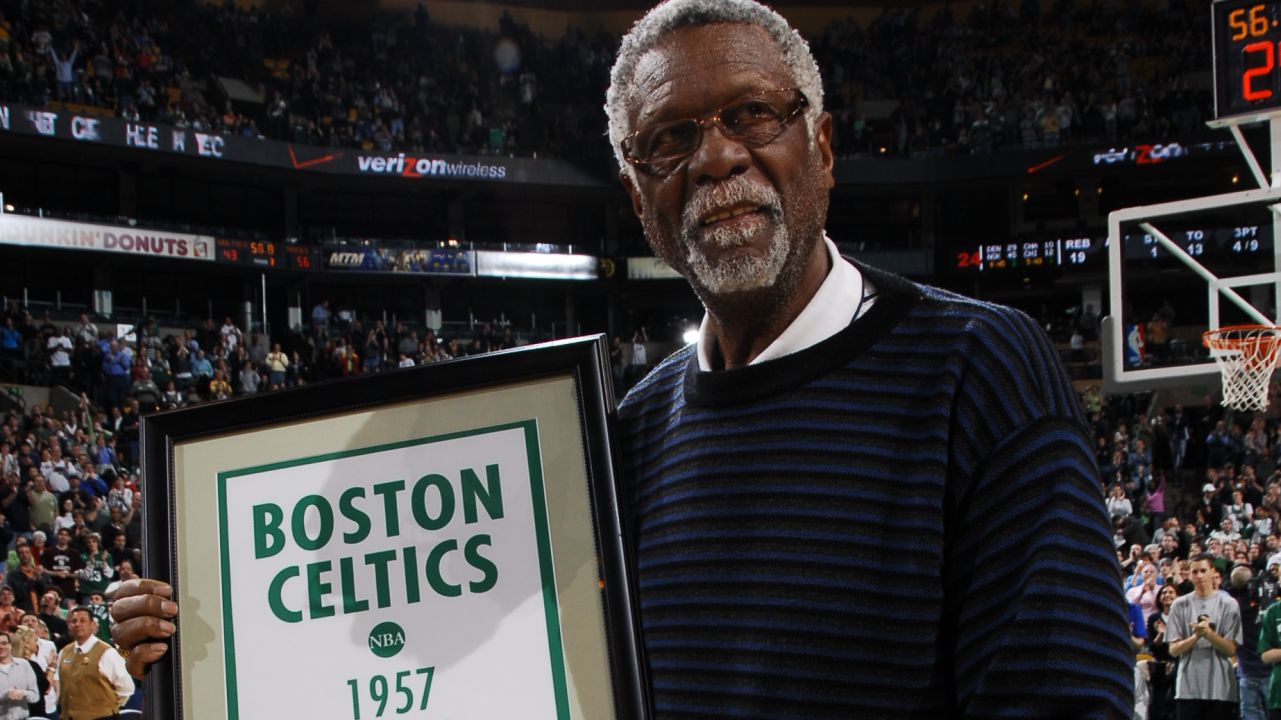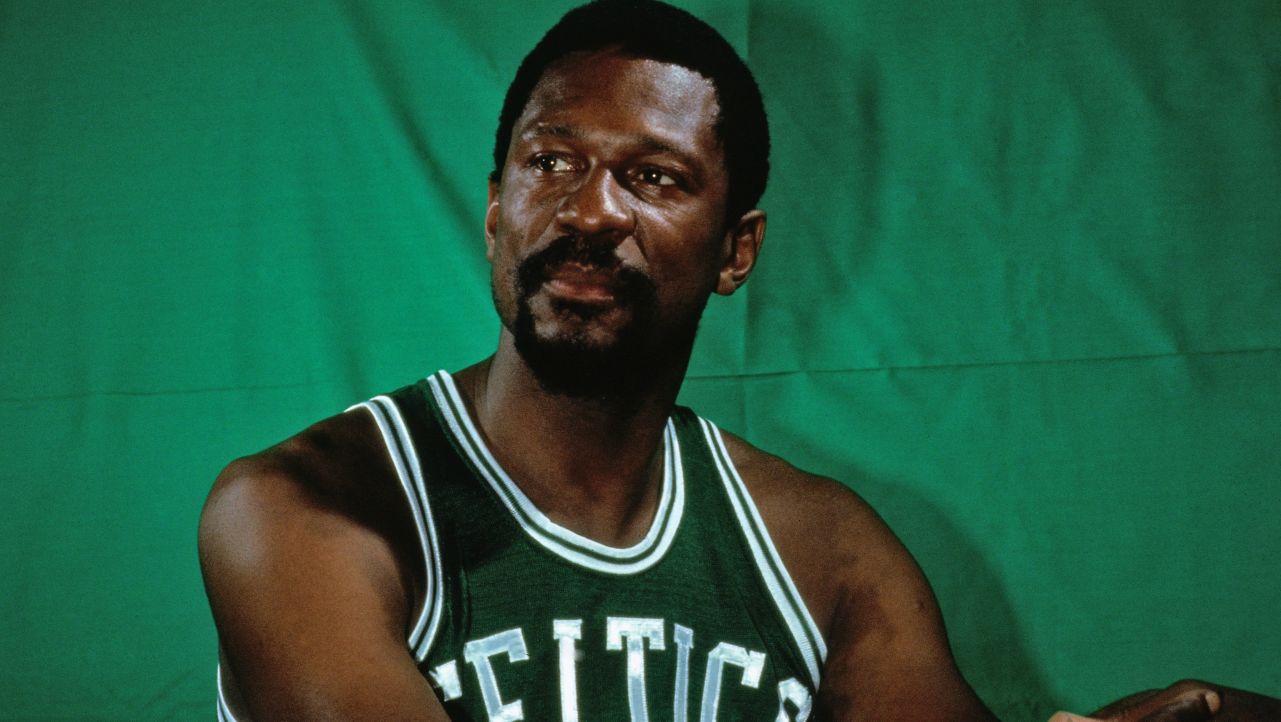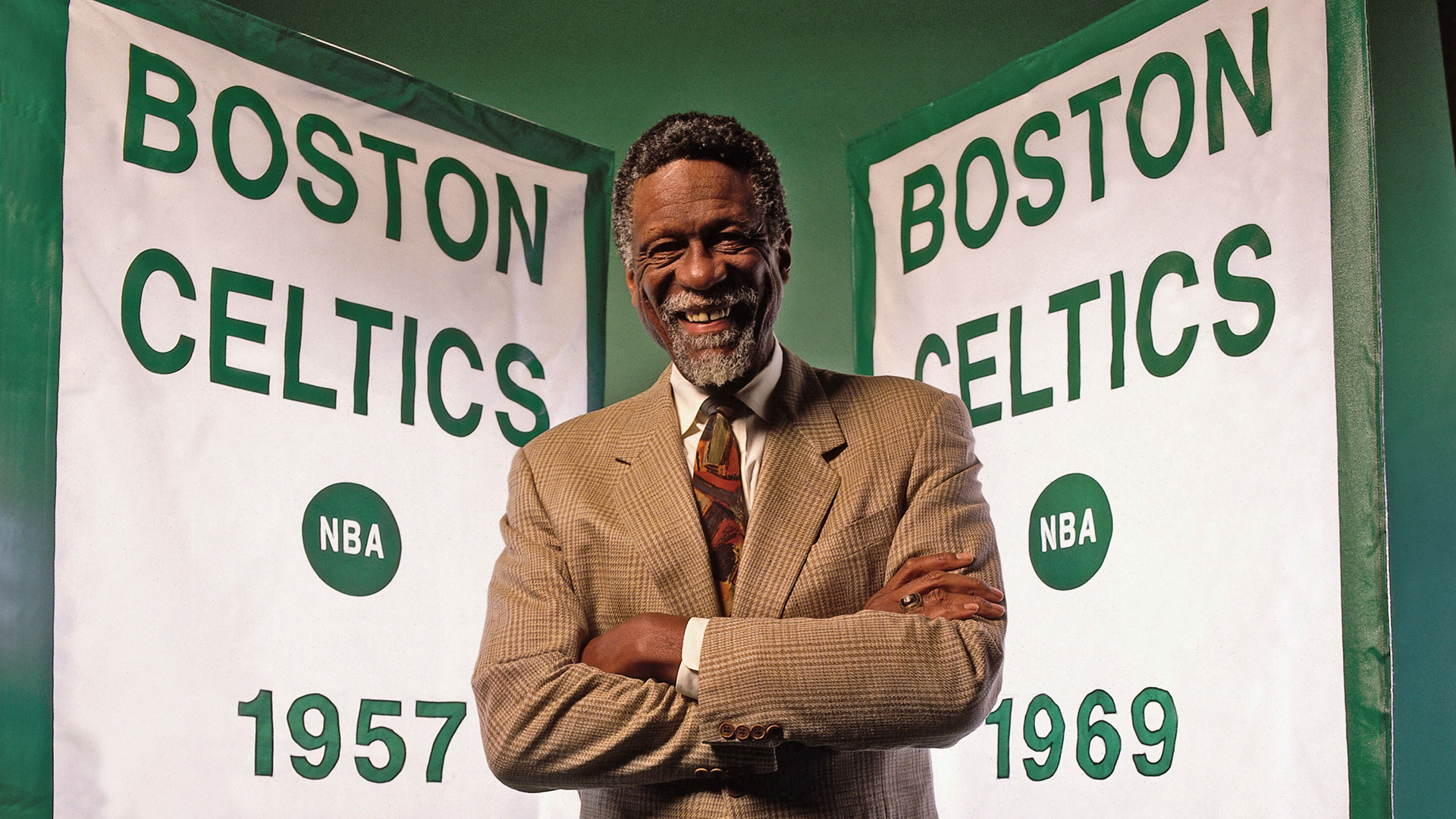The sports world is mourning the death of Celtics legend and civil rights activist Bill Russell.
Bill Russell never had to find his voice as an activist. He didn't know any other way but to speak his mind.
It's what made the winningest athlete in team sports one of the greatest champions of activism. His belief in equality and the stances he took helped create a pathway that athletes today continue to walk in.
WATCH ANYTIME FOR FREE
Stream NBC10 Boston news for free, 24/7, wherever you are. |
"What Bill Russell did on the court and off the should set a better example of what we need to do as a people here in the city," said Quincey Roberts, a longtime Celtics and Russell fan. "How he put his life on the line to bring about change, that motivated me to come to Boston and do the same thing."
"For me, as an African American living in Boston, and have family that were part of the Boston busing, it just best thing to give a tribute to him, and He stood up for something," said Terence Chauvet, as he stopped by the Bill Russell statue outside Boston's City Hall.
Get updates on what's happening in Boston to your inbox. Sign up for our News Headlines newsletter.
Len Elmore, who played 10 seasons in the NBA and is a senior lecturer at Columbia University where he's taught on athlete activism and social justice in sports, called Russell's social contributions "immortal."
"He showed many of us in the game how to be," Elmore said.
"He did it under these unbelievable circumstances that we were going through in our nation, around race," said Rev. Jeffrey Brown, associate professor at Twelfth Baptist Church in Roxbury. "Despite all of that, he would continue winning, he continued being the person that he was, he continued standing up against racism and oppression."
"He would still stand up and be the person that he was, and he was determined, determined to stand on his principals," Brown added.
Before Russell, who died Sunday at age 88, developed the skills that would make him an 11-time NBA champion with the Boston Celtics, two-time Hall of Famer and an Olympic gold medalist, he had a front row view of the racial indignities endured by his parents as he grew up in segregated Monroe, Louisiana.
In a time when Jim Crow laws in the South existed to silence the views of Black people, he was groomed to be an unapologetic thinker.
"I have never worked to be well-liked or well-loved, but only to be respected," Russell wrote in his 1966 book "Go Up For Glory." "I believe I can contribute something far more important than mere basketball."
That conviction was rooted in what he observed as a child in the late 1930s and early 1940s in Louisiana, where his father, Charles, worked at a paper bag company.
Russell was with him at a gas station one day when the attendant ignored them as he talked to a white man and then proceeded to provide service to other cars that had arrived after them.
Charles was about to drive off when the attendant pulled a gun and said, "Don't you try that, boy, unless you want to get shot," Russell recalled in his book.
His father responded by grabbing a tire iron and chasing the man away.

Decades before Colin Kaepernick's national anthem demonstrations to raise awareness about police brutality, or the collective sports world advocating for justice following the 2020 death of George Floyd and others, Russell used his platform to hasten civil rights.
It's why when Russell later faced his own forms of discrimination decades later, he didn't hesitate to challenge the status quo.
One of the first examples was 1961 when the Celtics were in Lexington, Kentucky for an exhibition game.
The team was in their hotel when teammates Sam Jones asked Satch Sanders to go to the lobby to get some food. They were refused service.
Later they were met by Russell and K.C. Jones. After Sam told them what had happened, Russell suggested none of the Black players should participate in the game and informed Celtics coach Red Auerbach.
The game would be called off after two more players from the St. Louis Hawks joined the protest.
When former President Barack Obama presented Russell with the Presidential Medial of Freedom in 2011, he called it an example of how he "stood up for rights and dignity of all men."
Russell didn't just risk sullying his reputation, he put his life at risk in the wake of the 1963 assassination of civil rights activist Medgar Evers in Jackson, Mississippi. Just days after Evers was slain, Russell reached out to the leader's brother, Charles Evers. He wanted to inquire about what he could do to help.
More on Bill Russell
Charles Evers asked him if he'd be willing to visit the state and stage its first integrated basketball camp. It was a huge ask considering the very real peril Russell would be putting himself in by visiting a city riddled with members of the Ku Klux Klan. Still, Russell accepted the invitation.
"I didn't want to go to Mississippi. I was like anyone else. I was afraid I might get killed," Russell would later write. "My wife asked me not to go. Some friends said the same thing. A man must do what he thinks is right. I called Eastern Airlines and ordered my ticket."
Despite coming off his third MVP award and fifth NBA title, Russell said "without hesitation" he'd have left the Celtics that season if his continued presence in Mississippi or anywhere else could have advanced the civil rights push.
"If my popularity depends on a thing like this, I don't give a damn," he said at the time.
A star of Russell's stature to show a willingness to put his convictions ahead of his athletic career put him in a small group during that time like Muhammad Ali, Lew Alcindor (now Kareem Abdul-Jabbar) and Jim Brown.
And it was Russell, Alcindor and Brown sitting beside Ali in Cleveland in 1967 when the boxer announced he was refusing induction into the U.S. military to fight in the Vietnam War.
Current Celtics star Jaylen Brown, one of several young NBA players who have used their own platforms to raise awareness and engage in social justice protests, said it was Russell who first taught him "it is OK to be more than just a basketball player."
It echoed what Russell wrote in 1966 about how he wished to be remembered.
"In the end, I live with the hopes that when I die it will be inscribed for me: Bill Russell. He was a man."
Russell's impact has been felt across sports and across generations. New England Patriots stars Devin McCourty and Matthew Slater spoke Monday of how important his leadership has been to Black athletes.
"When I think of Bill Russell, I don't necessarily think of the championships or the Celtics or the winning," Slater said. "I think of what he did for Black athletes, and I am a beneficiary of the actions of men and women like Bill Russell, who were willing to step out on a limb and advocate for Black athletes and Black Americans and really push for change, push for equality."
"As an athlete who gets to play in this area, I feel a lot of inspiration and motivation, form how he viewed things, and the road he paved for Black athletes to be successful in this city," McCourty said.




